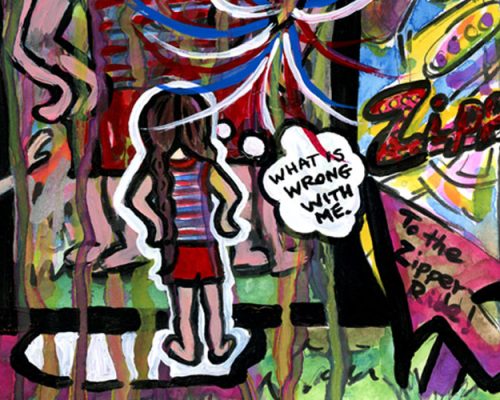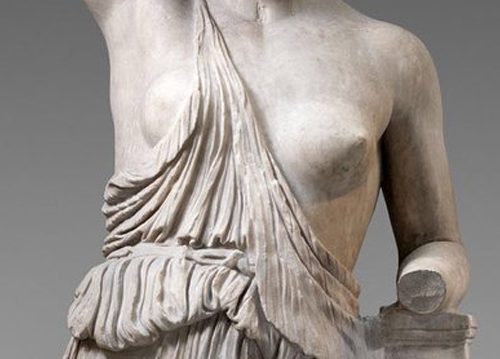I’m kind of fond of paper, when it serves a good purpose. Some readers may recall physical books, and teachers insisting we show our math work on paper that would accompany tests involving multiple choice answers, and we may remember the importance of other kinds of paper throughout civilization–as we yet partake of that which has gone before, understanding, for the most part, how we got here.
Photographs, art, historical documents, scriptures, instructions for building things, music and obviously, many things, somehow made the leap from oral tradition, individual experience, the walls of caves or rocks, from hand-inscribed scrolls to printing presses, resulting in your ability to access and read what I’m writing here.
While over-materialism has its definite ills, the eradication and poverty of tangible things–trails and such that can be authenticated, authoritative originals of many sorts and hold deep worth–is not a good thing.
This morning I saw a link to a TED Talk which sounded interesting, and I listened.
It seemed to be about art, mostly, and the creative process.
I consider myself at least above average in understanding art things, having enough Art History during my first two years of college to understand many concepts and references. Yet, it has taken many years of living and practice to fully begin to understand some concepts to which I was introduced.
It was about twenty-five years that I first began to really understood that in order to innovate upon any rules of art, music or life in a beneficial, understandable and progressive way, you first had to have a deep understanding of the rules themselves, and also, skills in the same.
~When someone stands before a Picasso, for example, and says, “It looks like a child drew that and it doesn’t look ‘real'” they are missing a number of key things.
~When one stands in front of paint splashes by Jackson Pollack and sneers, “I could have done THAT” there is some truth to that. Yet it involves more.
~When someone admires a painting by Van Gogh for its innovations and beautiful simplicity, they may wrongly assume that Van Gogh didn’t possess good drawing skills.
The whole history of art, music, film, culture and even War is filled with people pushing the boundaries and thinking in new ways outside of the proverbial box. I think there is a difference between progressivism and deconstructionism, but, it is very nuanced and to many, simple hair-splitting perhaps.
If we look at War for example, we might consider military tactics from the Revolutionary War (European, basically, and historical) and compare it with aspects of the tactics of the US Civil War. Modern (and Post-Modern) everything marches on, and next we are looking at atomic bombs and then drones activated by people half a world away sitting in the comfort of air conditioning. It’s a bloodless, faceless game and the military actually seeks people with good video gaming skills these days, or so I’ve been told.
I was kind of following the ride of this TED talk, until I wasn’t. Until I realized, I think he’s taking me and the listeners somewhere we didn’t sign up for nor I want to go…
Someone told me in recent years that to handle metaphor well, you must first handle the literal elements and references contained in the metaphor well. Today I had reason to remember someone telling me they were working with children in an urban setting, teaching about food and nutrition. One young boy said he “didn’t know how to eat an apple.” Like literally. Do you bite it whole? Can you swallow it? What does it taste like?
This should give us a sense of how far we’ve come from the Garden. A number of things about being human, and things in societies that are historically considered generally good and worthwhile, now are being slowly dismantled in seemingly synchronized movements involving the deconstruction of very basic rules (and of course, it is so insidious many are not fully contemplating what is being constructed in its place).
Perhaps it is because the pathway was paved with less and less people being truly taught the basic rules of how things really work? I mean, if you want to break a rule you must first know the rules and the history of the rules. If you want to think outside of the box, you must understand what a box is.
While it can be intriguing and compelling on some level when someone stands up and asks, “WAIT. You mean there is a BOX???...” at some point, we might need to tell that person to “Sit down and shut up. Yes, there is a BOX, and what you are speaking of is basic nonsense at best, and pure evil at worst.” (Let “he who has ears hear” this parable of THE BOX!)
While I could delve into a deeper analysis of this TED Talk, I don’t have the time at the moment. In fact, I think it better to challenge readers and thinkers to do a little work for themselves.
I can’t refrain, however, from giving a hint at the point in the talk where I thought, “Wait a minute.” Nor can I resist pairing the subsequent concepts and examples he detoured into that reminded me of another video, and to pair the two things. I could give more hints about the growing normalization of not truly owning a number of things historically backed by forms of good ownership…and the trend toward ideology grounded more in eastern thought than western civilizations, and gnosticism…I could go so very many ways and hints with all this.
And I truly fear that many are so numbed-and-dumbed down that they have no idea, opinion, or even energy to give it a second thought.
I mean, it’s the year 2023, not 1984. Who has any time for THAT.
(In the above talk, the turning point for me was when he began talking about realizing he could create things that “don’t exist”…from that point on, while his “creations” looked momentarily cool and of interest, there is ideology behind all this that artistically and otherwise, I must resist…)
_____
For Further Exploration
The World Economic Forum
In the bible, we hear the story of how the One True Creator made everything that is from “nothingness.” For me, the idea of reverting this process yet naming the creation of “nothing” as “something,” is very problematic.
Thank You For Reading
Please Feel Free To Express Your Thoughts Below




